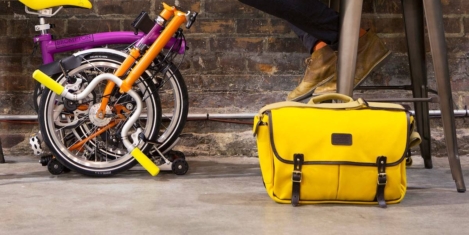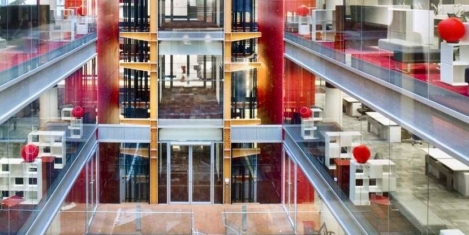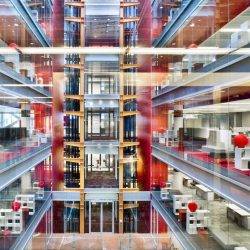To provide the best experiences, we use technologies like cookies to store and/or access device information. Consenting to these technologies will allow us to process data such as browsing behaviour or unique IDs on this site. Not consenting or withdrawing consent, may adversely affect certain features and functions.
The technical storage or access is strictly necessary for the legitimate purpose of enabling the use of a specific service explicitly requested by the subscriber or user, or for the sole purpose of carrying out the transmission of a communication over an electronic communications network.
The technical storage or access is necessary for the legitimate purpose of storing preferences that are not requested by the subscriber or user.
The technical storage or access that is used exclusively for statistical purposes.
The technical storage or access that is used exclusively for anonymous statistical purposes. Without a subpoena, voluntary compliance on the part of your Internet Service Provider, or additional records from a third party, information stored or retrieved for this purpose alone cannot usually be used to identify you.
The technical storage or access is required to create user profiles to send advertising, or to track the user on a website or across several websites for similar marketing purposes.
 A growing number of employees are frustrated in their attempts to adopt flexible working by the inability of employers to offer it, a new study claims. Based on the survey of 3,001 British employees, recruitment firm Timewise and consultancy EY claims that fewer than a tenth of jobs offering more than £20,000 per year pro rata are advertised with a flexible working option. This puts employers at a disadvantage because around two fifths of people claim they would prefer some form of flexible working, according to the report Flexible Working: A Talent Imperative.
A growing number of employees are frustrated in their attempts to adopt flexible working by the inability of employers to offer it, a new study claims. Based on the survey of 3,001 British employees, recruitment firm Timewise and consultancy EY claims that fewer than a tenth of jobs offering more than £20,000 per year pro rata are advertised with a flexible working option. This puts employers at a disadvantage because around two fifths of people claim they would prefer some form of flexible working, according to the report Flexible Working: A Talent Imperative.














 The quality of the cycling facilities being offered by many workplaces are currently falling short and risk undermining a Government drive to increase the number of people cycling to work; as according to new research published by the British Council for Offices, 16 percent of office workers claim that inadequate facilities are discouraging them from considering commuting by bike. In April, the Department for Transport stated an aim to double the number of cycling stages, defined as a change in the form of transport as part of a longer “trip” (e.g. cycling to the train station before catching a train to work), from 0.8 billion stages in 2013 to 1.6 billion in 2025. However, new research, commissioned by the British Council for Offices and carried out by Remit Consulting, finds that whilst 83 percent of workplaces in the UK offer some form of bike storage, less than half (47 percent) of this is covered and secure. Improved parking facilities could help increase numbers of those cycling to work, with 16 percent of office workers surveyed saying that better bike storage would encourage them to do so.
The quality of the cycling facilities being offered by many workplaces are currently falling short and risk undermining a Government drive to increase the number of people cycling to work; as according to new research published by the British Council for Offices, 16 percent of office workers claim that inadequate facilities are discouraging them from considering commuting by bike. In April, the Department for Transport stated an aim to double the number of cycling stages, defined as a change in the form of transport as part of a longer “trip” (e.g. cycling to the train station before catching a train to work), from 0.8 billion stages in 2013 to 1.6 billion in 2025. However, new research, commissioned by the British Council for Offices and carried out by Remit Consulting, finds that whilst 83 percent of workplaces in the UK offer some form of bike storage, less than half (47 percent) of this is covered and secure. Improved parking facilities could help increase numbers of those cycling to work, with 16 percent of office workers surveyed saying that better bike storage would encourage them to do so.


















August 14, 2017
Seven ways in which flexible working is making our lives more rigid
by Mark Eltringham • Comment, Flexible working, Technology
(more…)